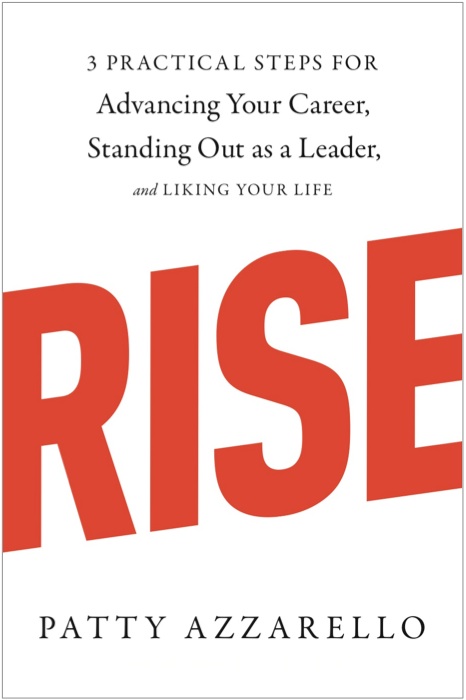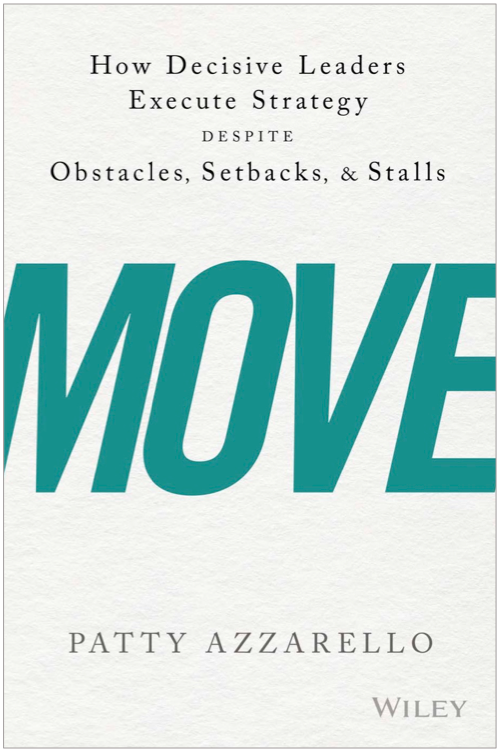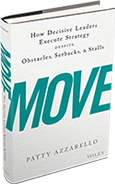How am I doing?
Once a quarter or so, I find it valuable to step back and ask: How am I doing?
Otherwise, you can end up consumed by work for years at a time, and not be really happy, or not be really getting anywhere.
So it’s helpful to take some time to step back and check in with yourself.
Three Questions for Success
Question 1. Am I delivering on, or ahead of expectations?
Judge yourself. Don’t wait for a performance review. I spent 23 years reporting to managers — and I did my own performance review 17 of those years.
Once you confirm that you are indeed delivering great results, then check:
Are you clear about the business value your work provides?
Could you be working in a way to add even more value?
One of the reasons people get stuck is that they think delivering on their job description is enough to get ahead.
It’s not. That lets you keep the job you have now.
To get ahead you need to do more than what’s in your job description.
You need to figure out what else to do and then you need to do it.
Don’t wait for your manager or someone else to tell you that you need to do this.
Don’t be held hostage by your job description.
If your job description is defined in a small and narrow way, then it’s up to you to figure out how to add more value. Also, you need to figure out how to get your job done without using up all your time and energy. You need to make room to do the extra stuff. (Lots of techniques for how to do all of this in my book RISE).
Question 2. What am I Known-For at work?
Another big reason some people get stuck (while others get ahead), is that they forget to think about how they are showing up at work.
Once you are convinced that you are conrtributing work that the business values, you need to ask yourself, “Can anyone see it?”.
The most successuful people find ways to create visiblity for their work and for themsevles and their teams.
I have been having this conversation lately with people from new college grads, to executives trying to step into CEO positions, and pretty much everyone in between.
You have a personal brand whether you know or it not.
Find out what people think of you — or find out if you are invisible.
Then plot a course to manage what you are known for on purpose.
The challenge is that the work itself will take up all of your time and energy if you let it. And managing your reputation does not seem like your day job.
So it’s helpful to think about building your credibility as part of your day job. And it’s true because high credibility makes your more effective in your work.
People with high credibiity and strong personal brands get more done.
They are trusted. They are faced with fewer challenges and fewer stupid questions about, “Why did you choose that? Why does this cost so much? Did you evaluate that other thing? How do you know this will work?”
People with high credibility get to go faster. They don’t need to spend so much time defending their honor (and their budget). They are permitted to just GO, without justifying every expense and every decision.
You can’t build credibility if you are invisible.
It’s the difference between getting the work done, and showing yourself as leading the effort, communicating effectively, and connecting with your peers in a meaningful way.
What more can you be doing to show up as personally leading strategy and making a difference. What do you want to be known for?
Some people call this political and think it’s a waste of time, so they opt out. They expect their reputation to thrive and grow on their results alone. Some people even feel that it’s much more important to NOT call attention to themselves. That is fine, but if you choose the invisible path, don’t be discouraged or upset if you get passed over.
Showing up is not about bragging, it’s about leading – you can be humble, and still show up as having a strong personal brand — and the stronger you show up, the better you’ll be at your job.
Question 3. Is what I am doing now setting me up for where I want to go?
First, ask yourself if you know where you want to go. What do you want all this work to amount to? What kind of role? What level? Geography? Business area? Once you decide what it is you want, you need to consider the following:
Is the work I am doing getting me the experience I need to get to the job I ultimately want?
It’s up to you to make sure you are getting the experiences which will get you access to the kind of roles you want in the future.
This is what career development is really about — Deciding what you want to do next, then getting experience in that job before you are in it.
You also need to pay attention to how you are perceived relative to the role you want.
Am I someone who is known for being a good fit for kind of job that I want?
If not, you’ve got some work to do. This gets back to the question of how you are showing up. In addition to getting the right experience, you need to make sure that you are getting known as someone who is a good fit for the kind of job you want.
Find experiences beyond your current job, and then make connections with people in the places you want to be later. Make sure they can see you doing the new work.
Succeed on Purpose
Most people who succeed do not do so by accident. They don’t just work hard and rely on their results to be admired, and expect to be “discovered” and ushered into the next big thing. They get there by managing how they invest their time and managing what they are known for.
A Special Resource for CIO’s
If you are a CIO or Technology business leader, the topic of building and maintaining credibility is so important because IT has unique credibility challenges within the business.
My friend and colleague, Martha Heller has been studying this dynamic for many years as she works with CIO’s and business leaders.
Check out her new book, The CIO Paradox: Battling the Contradictions of IT Leadership
In this book, you’ll see new ways of buiding your credibility and defending against the myriad of misunderstandings that surround IT. Martha offers of insights and practical advice about how to increase the value and the meaning of your IT role in the business.




